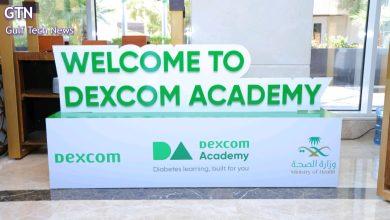Coursera’s cutting-edge Academic Integrity features uphold learning standards amid GenAI challenges

The new suite of Academic Integrity features helps universities verify learning in an age of AI-assisted cheating
Coursera, a global online learning platform, has introduced a new suite of GenAI-powered features designed to enhance the authenticity and verification of learning experiences for students, educators, and employers.
These features aim to increase the value of online assessments, courses, and certificates by reducing the risks associated with student misconduct.
Available within the Coursera for Campus platform and currently in pilot with select customers, the new features include Coursera’s AI-Assisted Grading, Proctoring and lockdown browser, and AI-based Viva Exams.
These tools are designed to support assessment creation and grading, and enhance learning and evaluation amidst the rise of AI-assisted fraudulent practices.
Studies indicate that 1 in 6 university students cheat in online exams, highlighting the urgent need for robust academic integrity measures.
Coursera’s new GenAI tools aim to proactively address this challenge by fostering integrity and detecting academic malpractices, ensuring a more reliable and credible online learning environment.
“Online learning has become a powerful tool for institutions to better prepare students for a rapidly changing world. However, universities must ensure it meets the rigorous standards required for academic credit,” said Jeff Maggioncalda, CEO of Coursera.
“While Generative AI introduces new risks for student misconduct, it also provides unprecedented opportunities for universities to enhance academic integrity at scale.”
Coursera is leveraging AI to tackle the challenges of assessment creation and grading at scale. The AI Assessment Generator saves educators’ time by generating diverse math, text, and multiple-choice assessments tailored to courses and seamlessly integrating them into assignments.
Question Banks and Variants offer a variety of questions and multiple variants for robust testing, making exams difficult to predict and easier to author.
And through AI-Assisted Grading, institutions can streamline grading by suggesting scores and feedback based on assignment analysis, with final decisions remaining with graders.
To strengthen academic integrity, tools such as Graded Item Locking require students to complete each lesson item to unlock graded items, promoting comprehensive learning and preventing skipping ahead. Coursera also ensures fairness and discourages trial and error by controlling exam attempts through Time and Attempt Limits.
Exam integrity is further maintained through Proctoring and a lockdown browser that blocks unauthorized resources and detects unauthorized assistance during high-stakes exams. Additionally, a Plagiarism Detection tool instantly identifies content similar to previous submissions, deterring plagiarism and educating students on independent thinking and originality.
Enhancing the learning and evaluation experience, Coursera Coach, a personalized tutor powered by GenAI, provides interactive learning assistance, lecture summaries, guided practice with spaced repetition, and tailored pre-assessment reviews.
The AI-based Viva Exam tests the authenticity and critical thinking in students’ written submissions, enabling educators to conduct viva-style written exams where students ‘show their work’ and graders receive detailed analysis. Coursera is also enhancing peer feedback with AI-powered insights, evaluating text-based submissions and generating grades using assignment rubrics.





